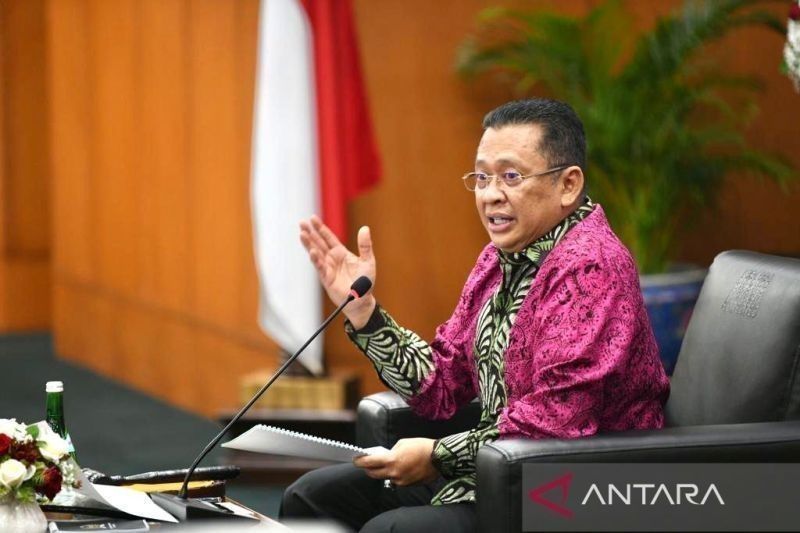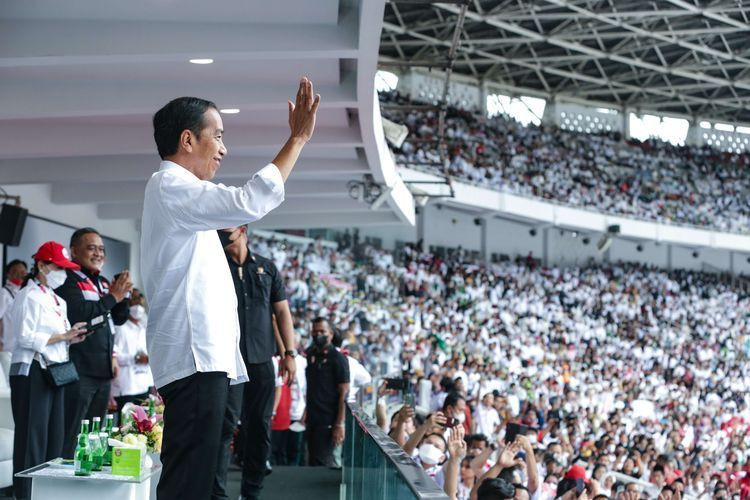When it comes to issues concerning people, taking their side is needed, just as Jesus did
Christians in Indonesia attend a prayer service at a Catholic church in Jakarta on April 18, 2014. (Photo: AFP)
Published: January 27, 2023 11:29 AM GMT
Updated: January 27, 2023 11:54 AM GMT
Video footage recently circulated on social media platforms claimed that groups of clergy have declared support for a certain presidential candidate in Indonesia. Church officials have denied it but the controversy shows how the Church’s view is valued in the Muslim-majority nation.
The videos are believed to be created by supporters of former Jakarta governor Anies Baswedan and emerged after his official nomination by the National Democrat Party (NasDem).
Church officials say the footage was recorded when Baswedan met Cardinal Ignatius Suharyo and some priests at Jakarta’s cathedral. However, the narration was fabricated to appear as if they were there to endorse Baswedan’s candidacy.


No political matters were discussed during the meeting and the video was engineered for political purposes, Church officials assert and say such tactics of dragging of high-ranking Church officials into a petty political campaign is unprecedented in the country.
But why are they doing it?
“It should serve as a wake-up call for Christians, in particular Catholics, to stop seeing themselves as a minority”
Some Catholics see it as a tactic to repaint the image of Baswedan, who has been associated with identity politics ever since he assumed the governor’s role more than five years ago and left office in last October.
Throughout his tenure, radical and conservative Islamic groups have stood by him. If these supporters are indeed behind the videos, it can be perceived as recognition of the Catholic Church’s influence on Indonesian society.
Whoever created those videos values the Catholic Church’s consistent and committed stand for unity, pluralism, and nation-building.
It should serve as a wake-up call for Christians, in particular Catholics, to stop seeing themselves as a minority or secondary group in Indonesian politics.
The government and moderate Muslims recognize the significant role that the Catholic Church plays in the country’s education, health, and even politics, starting from the pre-independence era.
At least ten Catholics were declared national heroes and they include Cardinal Albertus Soegijapranata, the first native Indonesian priest, and layman Ignatius Joseph Kasimo who founded the Catholic Party during colonial times.
The Catholic Church, which arrived here in the 16th century with Portuguese missionaries, has nearly 10 million members. They account for a third of the total Christian population, which may be just a small slice of the 270 million people in the Muslim-majority nation.
The Catholic political movement before and after independence was quite strong, however, things started to change after the fall of Suharto. As democracy began its onward march, marked by the birth of political parties, the movement entered an era of polarization.
“When it comes to collective or party decisions or actions, they often become party employees”
Catholics became divided too as they adopted a more pragmatic view of politics. Their enthusiastic approach led to a number of Catholics and Protestants becoming respected members of the main political parties. Some of them came to hold prestigious posts in parliament and the cabinet.
And yet, the challenge for Christian politicians in present-day Indonesia is bigger than ever.
With a growing number of people experiencing poverty, inequality, injustice, and other forms of discrimination fueled by governments and corporations, Christians are required to be on the side of the people.
However, their political pragmatism, which values reality over ideology, is creating mediocre Christian politicians. When it comes to collective or party decisions or actions, they often become ‘party employees’ rather than avid policy makers working for the common good.
Most political parties give less attention to solving societal problems, especially those affecting marginalized groups.
“The church continues to echo the catchphrase: 100 percent Catholic, 100 percent Indonesian”
In the past several years, laity and youth commissions in Indonesian dioceses have been educating Catholics, particularly the youth, to participate actively in politics or at least exercise their right to vote.
A youth chaplain once told the local media that the inability of Catholic politicians to demonstrate Gospel values has had a tremendous impact on young people, thus preventing them from joining political movements.
On the other hand, the Church continues to echo the catchphrase “100 percent Catholic, 100 percent Indonesian” — coined by Jesuit Cardinal Soegijapranata — to remind Catholics of their call to bear witness to God’s love in the Muslim-majority nation.
It may be hard to return to the old days of great Catholic heroes. But one thing is sure; when Catholics, especially those in power, walk the talk, change can happen.
The Catholic bishops and priests may maintain neutrality when it comes to politics. But when it comes to issues concerning people, taking their side is needed, just as Jesus did when the sick and outcast came to him for help.
Pope Francis told young politicians “not to be afraid to walk the paths of fraternity and to build bridges between individuals and peoples in a world where many walls are still being built out of fear of others.”
This should be a message for Indonesian Catholics. As the Abu Dhabi fraternity document has been adopted by Indonesian Muslim groups, it’s time for Catholics to jump on the bandwagon.
*The views expressed in this article are those of the author and do not necessarily reflect the official editorial position of UCA News.








